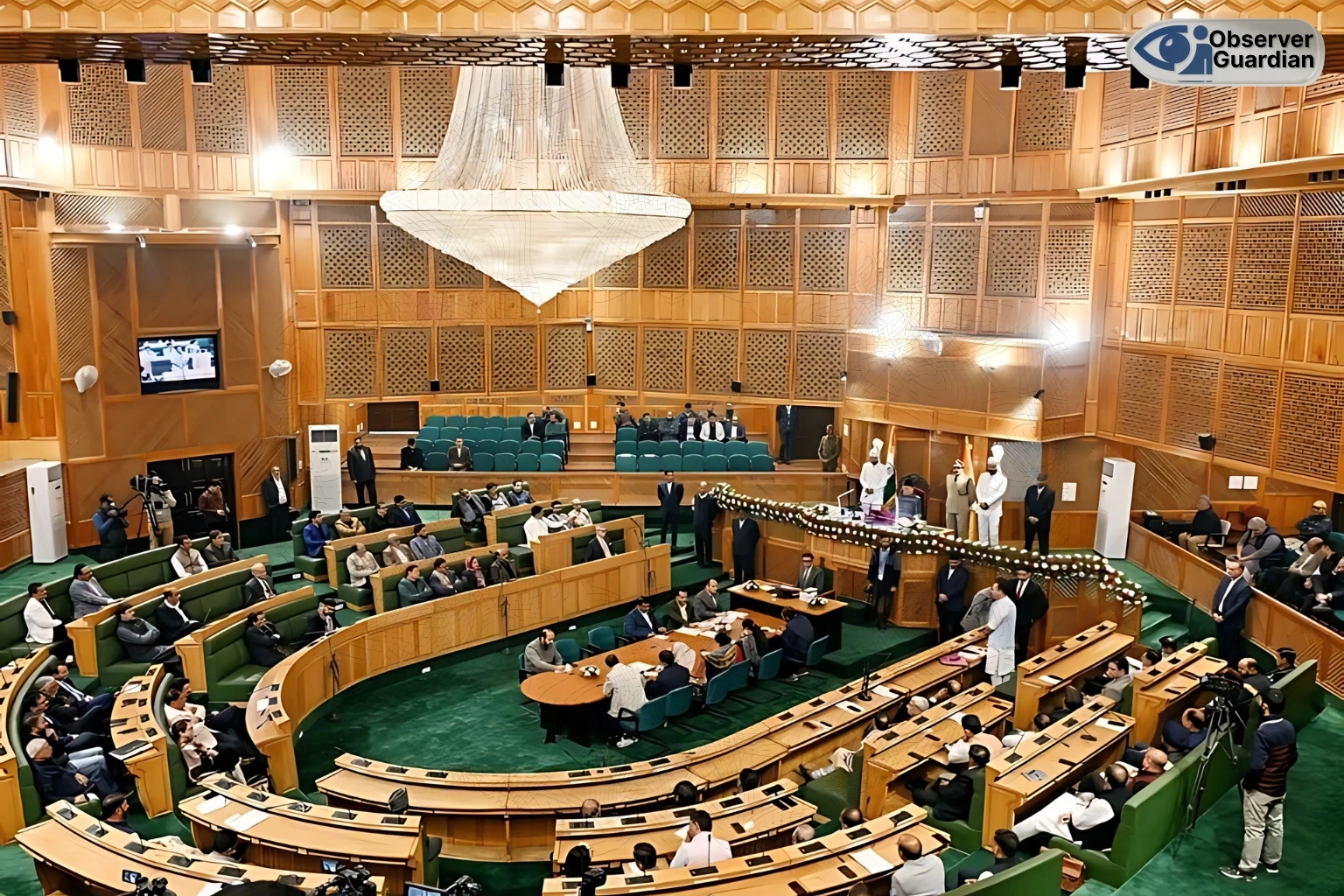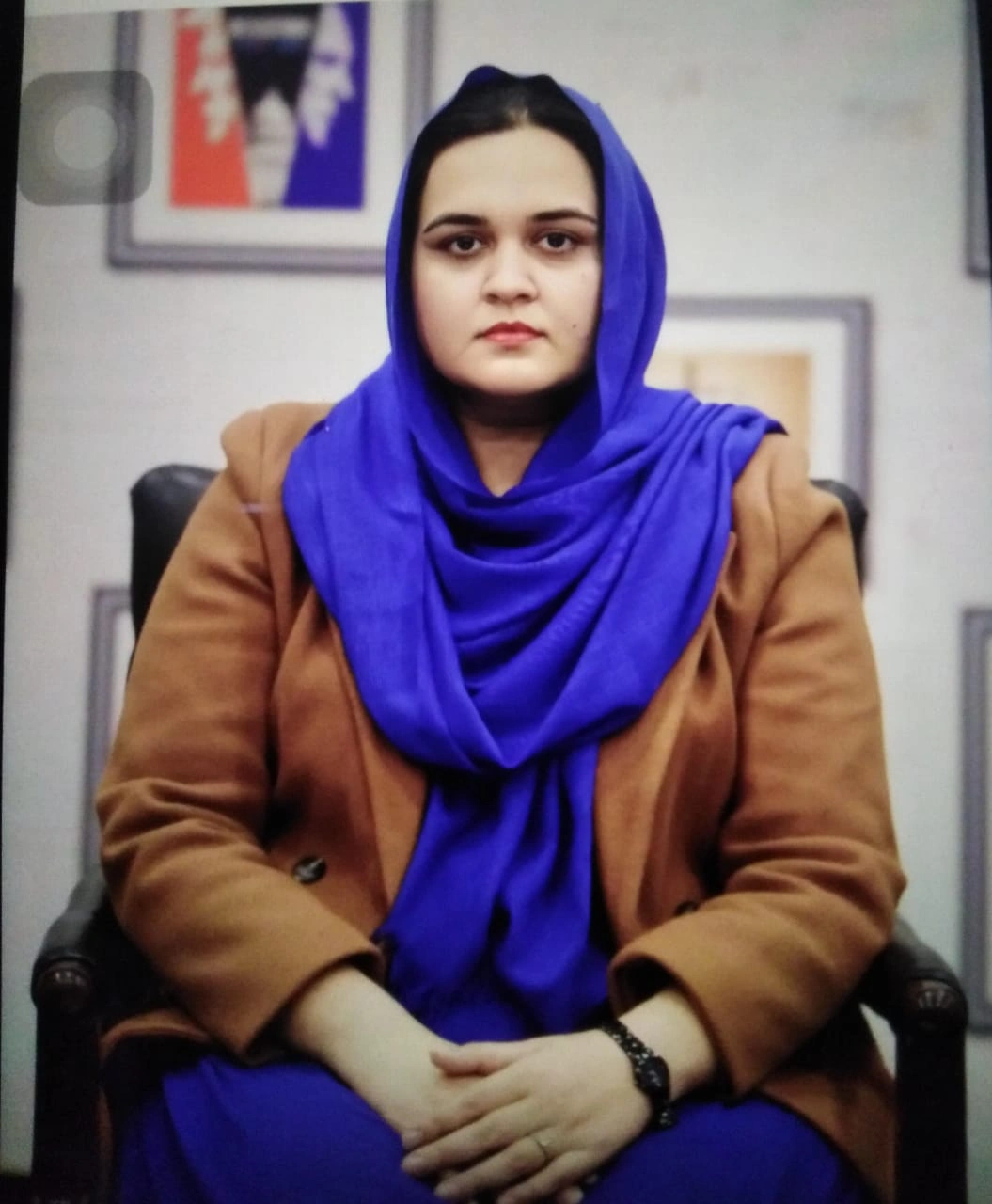The Nomination Row, A New Political Battle
A novel lawful and political clash in Indian Illegally Occupied Jammu and Kashmir (IIOJK) has wrecked out. It is on the suggestion of representatives to the Legislative Assembly of the Merger Land. Recently, the Ministry of Home Affairs (MHA) submitted confirmation to the High Court of IIOJK, affirming that the Lieutenant Governor (LG) only has the expert witness to elect five members and does not require “assistance and guidance” from the chosen government. The conventional IIOJK political parties have intensely opposed this development, seeing it yet another example of disempowerment within the area’s already complicated and stressed democratic system.
Ministry of Home Affairs Legal Position and Arguments
The Ministry of Home Affairs argues that the Lieutenant Governor’s constitutional authority to nominate is separate from policymaking functions that call for the council of ministers’ advice. The MHA states that this arrangement is in line with the custom in other Union Areas, like Delhi, where the LG is legislative in having similar nomination powers. The Jammu & Kashmir Reorganization Act, 2019’s Sections 15, 15-A, and 15-B, which need inclusivity over these Assembly nominations, serve as the foundation for the MHA’s legal position.
The MHA highlights the need for improved representation of marginalized communities, especially women and displaced groups like Azad Jammu & Kashmir residents and Kashmiri migrants, who are currently under signified in the legislature. Two women, two Kashmiri migrants (including one woman), and one AJK exiled person are among the five nominations.
According to the MHA, these nominations fulfil a critical legislative function that promises an inclusive and diverse Assembly.
The ministry denied Senior Congress leader Ravinder Sharma’s petition because it was politically motivated.
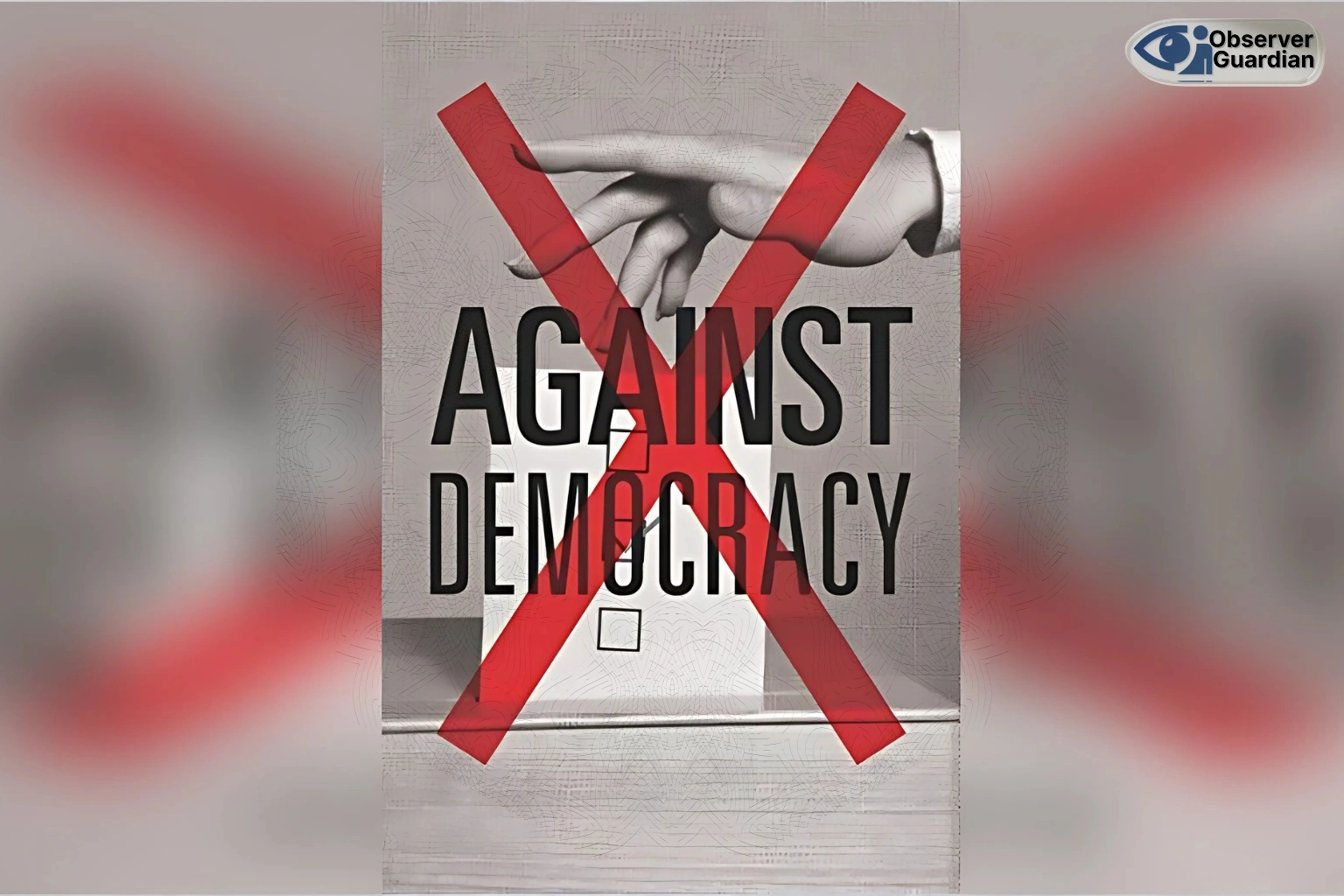
Challenges to the Nomination Process
Experienced Congressman and former Jammu and Kashmir Legislative Council member Ravinder Sharma has trooped a formal challenge to the constitutionality of these sections. Sharma resists that the nomination procedure is illegal, backed by prominent Supreme Court advocate Dr. Abhishek Manu Singhvi.
His main disagreement is that nominations have the ability to change the elected stability of power by adding members “over and above” the 114 seats that are authorized. Sharma declares that this has the potential to change the Assembly’s conventional, undermining the elected official’s democratic obligation.
He further claims that the LG should not nominate associates without first referring the elected Council of Ministers for the reason that it is an unelected official.
Mainstream Political Parties Unite in Opposition
In IIOJK, political parties have uttered displeasure of the MHA’s affirmation, quoting a blatant misbehavior of democratic values.
The president of People’s Democratic Party, Mehbooba Mufti, criticized the action as a blatant subversion of democratic principles and warned the administration commanded by the National Conference that remaining quiet would sum to collaboration in the inequitable model. The government should contest this unfair pattern, she urged.
In the Indian Independence Assembly, the LG’s nomination authority has been accused by the National Conference and the Communist Party of India (Marxist) as contempt for the people’s mandate and a clear effort to weaken the electoral democratic process.
M.Y. Tarigami condemned the recommendation power as a danger to the autonomous process of the Assembly, while Tanvir Sadiq, the chief representative for the NC, criticized the LG’s action of members.
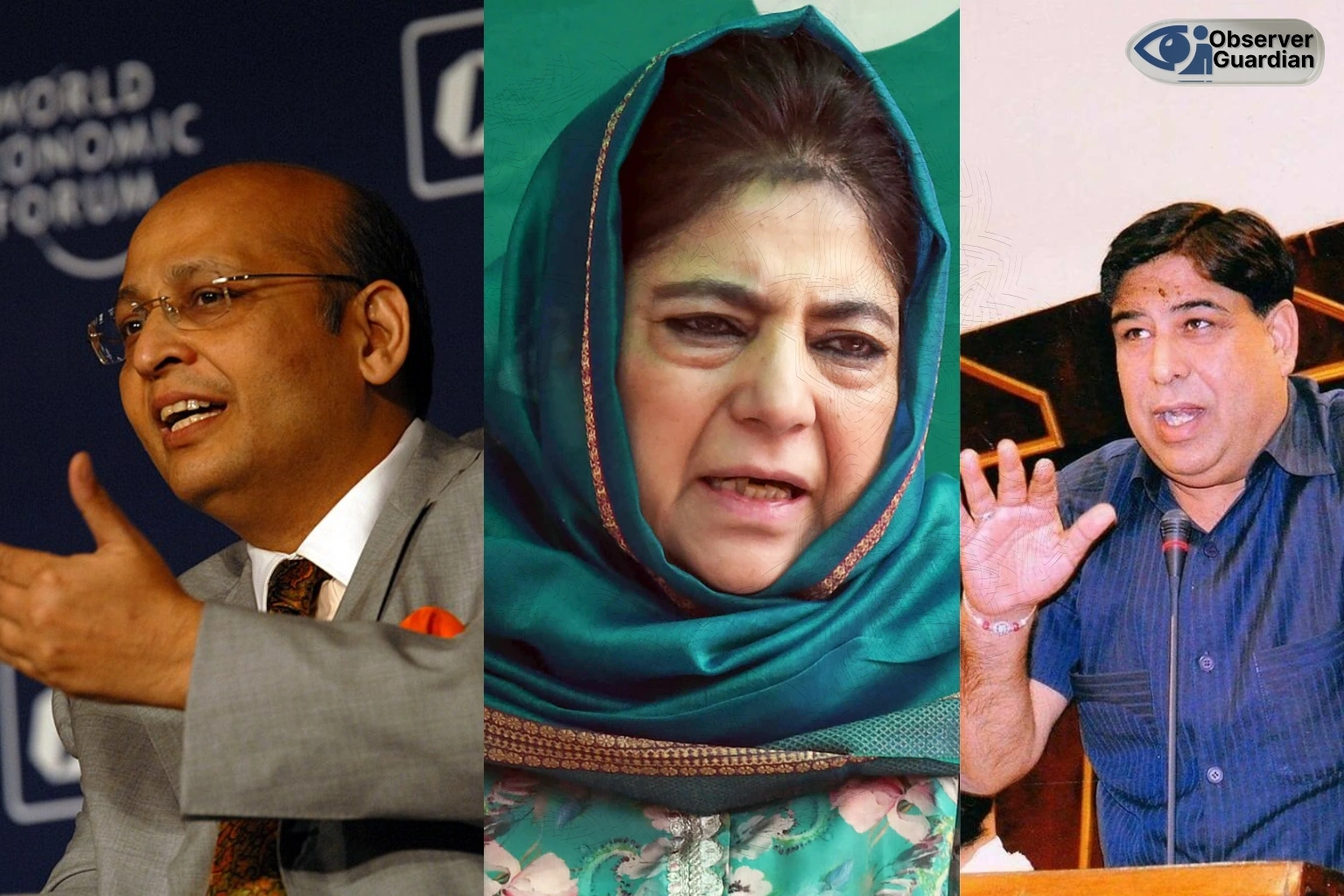
Political and Parliamentary Impact
There are currently 90 elected members of the IIOJK Legislative Assembly. The asset rises to 95 with the addition of five nominated members.
These suggestions have political difficulties that spread beyond the changing aspects of the Assembly to the arena of governmental representation. The Rajya Sabha (the Upper House) are selected by IIOJK.
The National Conference Congress association grasps a contented mainstream in the Assembly, governing more than 50 seats. However, with the aid of the selected members, the Bhartiya Janata Party (BJP) might be capable to win another Rajya Sabha seat, carrying its whole number of seats in the Rajya Sabha to two.
The nominee concern was directly linked to parliamentary balance and effect because IIOJK has not any Rajya Sabha members since February 2021. A displaced person from AJK, women, and Kashmiri migrants are among the LG’s nominated members.
The conflict between the UT’s local democratic forces and dominant authority was underlined by the legal clash over this power, which has political implications.
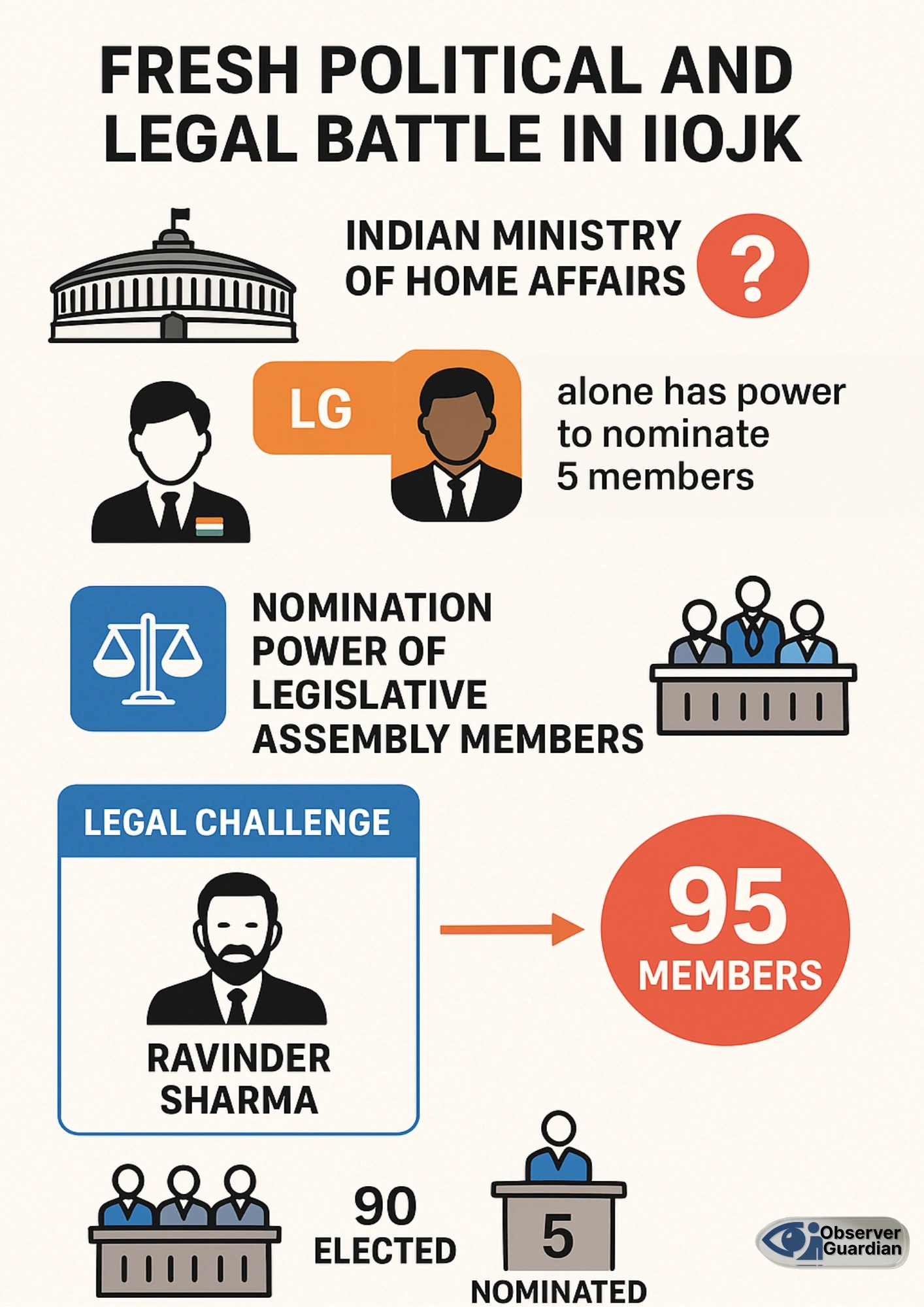
The IIOJK nomination argument has carried the Union Territory’s dangerous democratic structure into the public eye. According to the Ministry of Home Affairs, the LG’s proposal authority is a legal responsibility that is essential for inclusivity.
Elder political figures and parties, on the other hand, believe that this is a politically determined move that goes beside the determination of the people and independent values. The argument has significant political consequences for demonstration and supremacy in IIOJK, in accumulation to raising important legal issues.
It will be vital for the state’s future radical stability to settle this battle in a way that strikes a balance between inclusivity and democratic legality.
Disclaimer: The views and opinions expressed in this article are exclusively those of the author and do not reflect the official stance, policies, or perspectives of the Platform.

